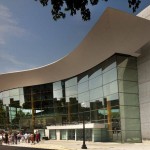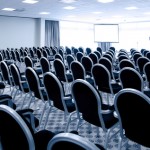 So, I’m attending a meeting at Arena Stage in Washington DC today. The attendees are staff members at Arena Stage, about 18 nonprofit and commercial theater producers, and a handful of artists (playwrights, composers). The purpose is to discuss issues of common concern around developing and producing new work. I am here primarily to help document the meeting. There are no press at the meeting.
So, I’m attending a meeting at Arena Stage in Washington DC today. The attendees are staff members at Arena Stage, about 18 nonprofit and commercial theater producers, and a handful of artists (playwrights, composers). The purpose is to discuss issues of common concern around developing and producing new work. I am here primarily to help document the meeting. There are no press at the meeting.
A few months ago I attended a meeting of about 25 or 30 performing arts presenting curators and nonprofit theater artistic directors. The purpose was to discuss issues of common concern around the development and production of new work. I was there to help moderate the discussion. There were no press at the meeting.
Putting field conferences and such events aside, over the past ten years, on almost a monthly basis, I have attended meetings of anywhere from 15 to 100 people, various types in the arts and culture sector, who have gathered for anywhere from ½ day to 3 days to talk about issues of common concern: heads of major university presenting organizations, the artistic and managing staff of one arts discipline or another to talk about ‘issues in the field’, staff and board members of leading orchestras in the country, those running single choreographer dance companies, those running dance presenting institutions, independent producers, people interested to come together and talk about the L3C model, etc.
I could fill this page with examples of such meetings. And in spirit and intent they were all rather similar to the meeting I am attending now. Meetings, in case anyone has never attended one, can be an effective way to have conversation with other people that you’d like to talk with. They can also, incidentally, be a colossal waste of time.
So, anyway, this will perhaps not be surprising to people who attend meetings on a regular basis but the press were not invited to, nor were they in attendance at, any of these meetings I have attended on an almost monthly basis to address various issues of common concern to people in the arts and culture sector. They just happened. People showed up and talked. Sometimes things were said that were really, really boring. Sometimes things were said that would perhaps been quite interesting to the world-at-large. However, there was an understanding that the purpose of the meeting was not to speak (at least not immediately) with and to the world about the topic, but rather to enable a productive conversation about the topic among a particular group of people.
While I’m not 100% certain about this, I would hazard a guess that the press were not alerted beforehand that these meetings were happening. The reason is probably pretty obvious but I’ll just state it here. If the purpose is to get a group of people together to talk about something and you don’t think it will be interesting to the press or you don’t want the meeting to be a public one, you don’t send out a press release about it beforehand.
For some reason, after having invited 20 or so people to a meting, which all attendees were told was not going to be streamed on the web or in any other way made public, Arena Stage sent out a press release. And because the topic of the meeting sounds rather interesting, members of the press were eager to attend. But the agreement Arena had with all of the attendees going into this meeting was that the press would not be in attendance.
By agreeing to come to this exclusive meeting Peter Marks at the Washington Post has suggested that I and other people are part of the “1%†and “that we are required with opportunities such as this one to fling open the doors to the other 99â€.
Really? Â I am a big fan of transparency in the nonprofit sector and in documenting and sharing field discussions, but I think it is rather crazy to suggest that every meeting or gathering of people in the nonprofit cultural sector should be required to be open to everyone for viewing and that if attendees go to meetings that are not open to the public they are somehow betraying those who were not invited.
Leonard Jacobs (Clyde Fitch Report) Tweeted and asked me whether by ‘condoning’ this meeting “I truly believe that the 1% vs 99% argument couldn’t apply to you?” The implication that I’ve endorsed something rather egregious by showing up and documenting a meeting is strange to me. I wonder if every meeting that Leonard Jacobs attends has press in attendance?
Meetings happen. Some are intended to be public discussions and some are not.
This one, evidently, was not.
Arena did nothing wrong by wanting to have a meeting that was not public. Â This happens every week of the year in nonprofit arts institutions and foundations across the US and around the world.
The only questionable move from my perspective was sending out a press release, which put the meeting on the radar of the press and then put Arena in the position of needing to defend why it had decided not to make the meeting public. Peter Marks deserved better and so did the attendees of this meeting who have now been made to look like jerks just for saying yes to an invitation to come together and talk to each other.

